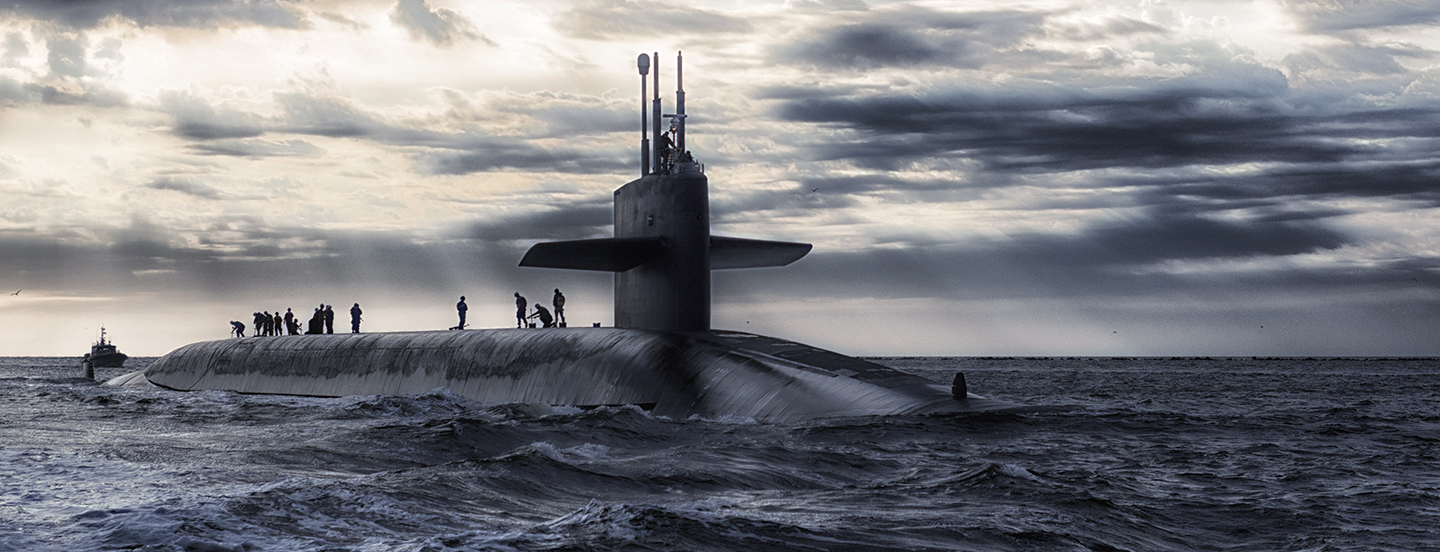In a nutshell
With budgetary pressures on the armed forces increasing, the requirement for efficient delivery is more far-reaching than ever. As a result, there is an ongoing need in the industry to invest in its workforce’s capability. The maritime industry and the customer realise the current working practices are detrimental and change needs to happen.
Until recently, investment in workforce learning and development has been lacking in the British maritime industry. Studies have shown that 30% of the non-productive time in the sector is related to aspects which directly relate to the capability of the workforce.
Capability can incorporate a range of key areas; from an operational perspective executing work in a structured manner, poor job preparation, lack of coordination between services and reworking of project elements. Investing in the correct training and development strategies would allow the industry to save millions of pounds each year, as well as benefiting the long-term workforce.
As technology moves forward, are maritime professionals being left in the past?
The maritime industry is a specialist industry requiring a mix of technical and project management skills. In recent years, it has made technological advances, including the investment in improved design systems and mobile working applications.
However, as the technology revolution advances, the workforce risks being left behind. Until a very recent surge in apprenticeships, the industry has been faced with a rapidly ageing demographic, leaving an upcoming capability gap. Those who have been in the industry for decades are faced with the challenge of changing 30 years of working practices, while there is a pressure on apprentices to accelerate learning to fill the gap.
This results in a lack of understanding of new processes, causing employees to improvise when under pressure. Due to this, there is an ingrained culture of “fire-fighting”. This approach, combined with a lack of training, means that a reactive response has become the norm. Positive behaviours such as planning and deconflicting work ahead of time are practices which are not trained, rewarded or recognised onsite. One experienced shipbuilder once told Newton consultants:
This indicates a low motivation to resolve issues within the workplace. Other professionals described the capability in certain areas as being “one brick thick” with processes reliant on a “handful of heroes”. This problem will become a collective factor as the more experienced workers begin to retire.
With budgetary pressures on the armed forces increasing, the requirement for efficient delivery is more far-reaching than ever. As a result, there is an ongoing need in the industry to invest in its workforce’s capability. The maritime industry and the customer realise the current working practices are detrimental and change needs to happen.
So, what’s the solution?
A cultural shift is required in the maritime industry’s opinion of career development. This shift will in turn create more efficient processes, empower employees to identify potential problems before they impact on delivery.
Newton has identified three changes that need to take place within the industry, enabling leaders to get the most out of their workforce and ultimately, remain competitive.
1. Plug the capability gap
Businesses should start by identifying the core skill sets and standards they expect individuals to perform at, along with any gaps within their workforce’s capability. It is also essential that business owners don’t just rely on apprentices to fill gaps, but instead attract experienced employees that can mentor new talent. Furthermore, working with dedicated partners can allow certain gaps to be plugged across the industry.

However, there are additional risks that some skills are in danger of depletion due to the sporadic nature of demand within the industry. This can be seen with the shaft and propeller installation expertise for surface ships. Skills can be outsourced to the wider industry, but there is a core SQEP level that needs to be maintained. Partnering can mitigate some of the risk but the Ministry of Defence has a role to play in the way it places demand on the industry to preserve some essential capabilities.
2. Encourage ownership
Professionals are accountable when empowered to do so. A strong skillset should be developed to give employees the tools and autonomy required to make informed decisions. Giving individuals the means to succeed lets handing over this accountability easier and allows for performance management, whilst weaknesses can be identified.
To encourage professionals, you need to celebrate proactivity. A shift in mindset from reactive problem-solving to proactive risk mitigation will reduce repeating work, whilst improving both cost and scheduling performance. Steps should be taken to avoid disasters, while errors should be investigated to prevent reoccurrence. This “right first-time” attitude motivates individuals to meet quality standards, deadlines and cost expectations. As a result, employees become accountable for their roles, breaking down silos and creating a more unified approach to the business.
3. Prioritising continuous development
There is a need to develop a viable succession plan to rectify the concerns of an aging demographic. The development of the workforce should be the high priority as it allows for opportunities to learn from experience.
Examples from the maritime industry show that the most effective training is delivered by subject matter experts from within a peer group and then followed up with practical support. The recent growth in apprenticeships has kickstarted this process, but individuals should be sharing expertise and experience across the entire workforce, not just to new entrants. The onus is also on the industry to help workers take pride in accelerating their learning and to do so as technology and ways of working evolve.
Tom Niven, head of operations for the Prince of Wales build programme has witnessed first-hand how important it is to recognise employees, making them feel part of the bigger picture:
Development of skills and the mindset required should be prioritised to improve the future success of the British maritime industry. A sharper workforce will drive improved performance and increase customer confidence, but this process needs to be accelerated. The technical capability exists, but action must be taken to ensure that capability is preserved and maximised. This requirement for a cultural change towards training and development is fundamental to the future success of the UK maritime industry.
This article originally featured in Land, Sea and Air Magazine
All images © Crown copyright 2017





